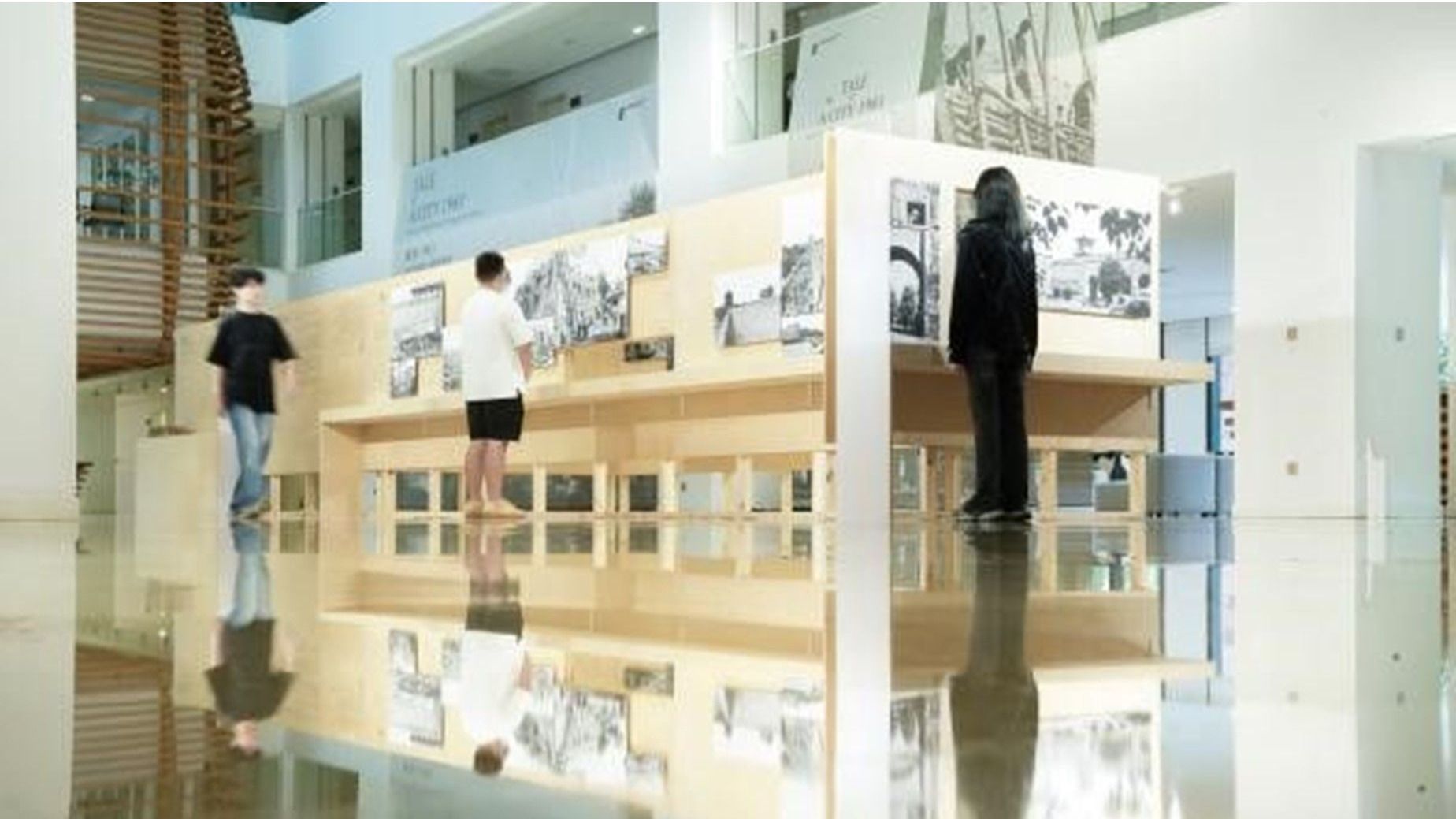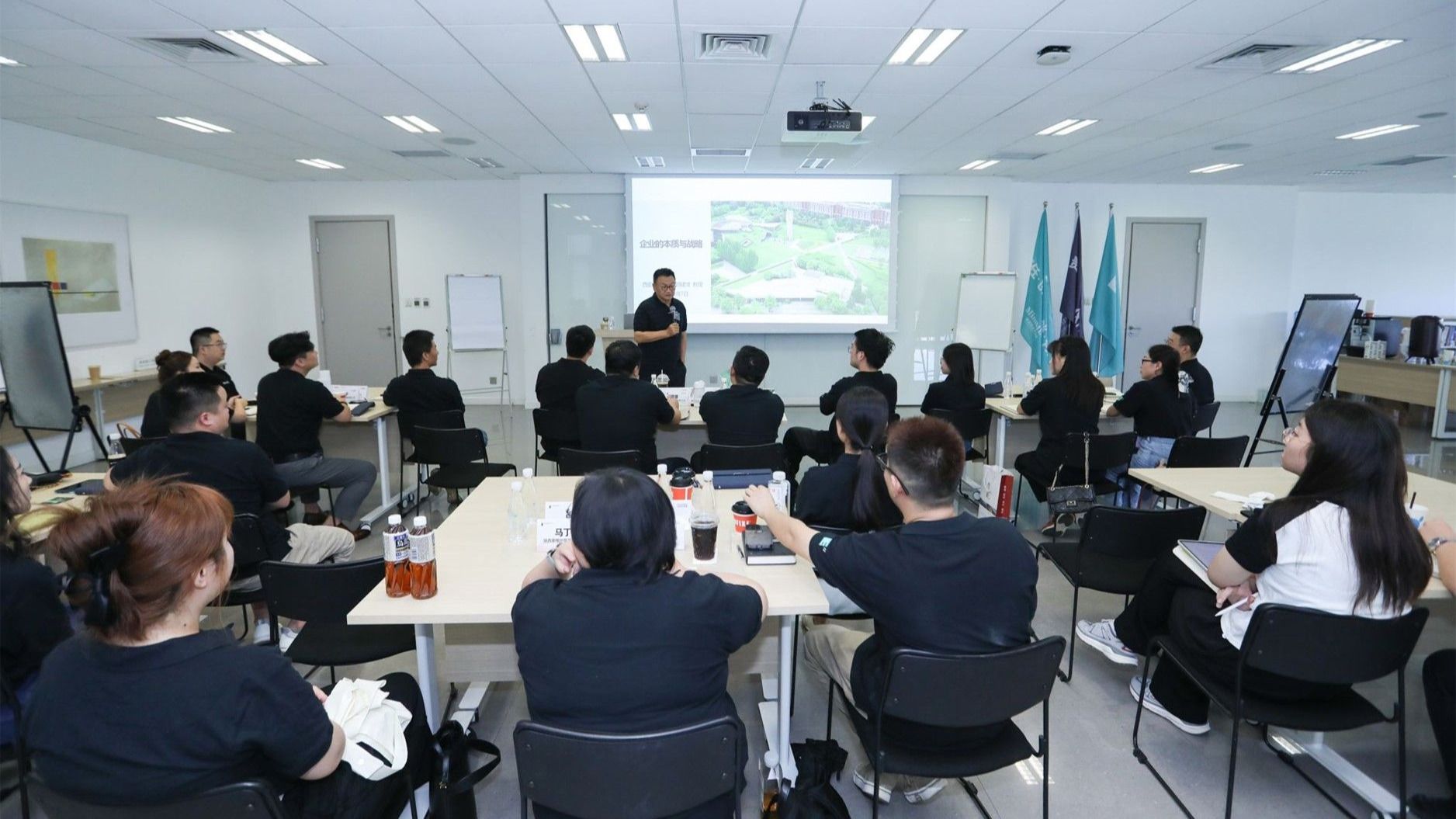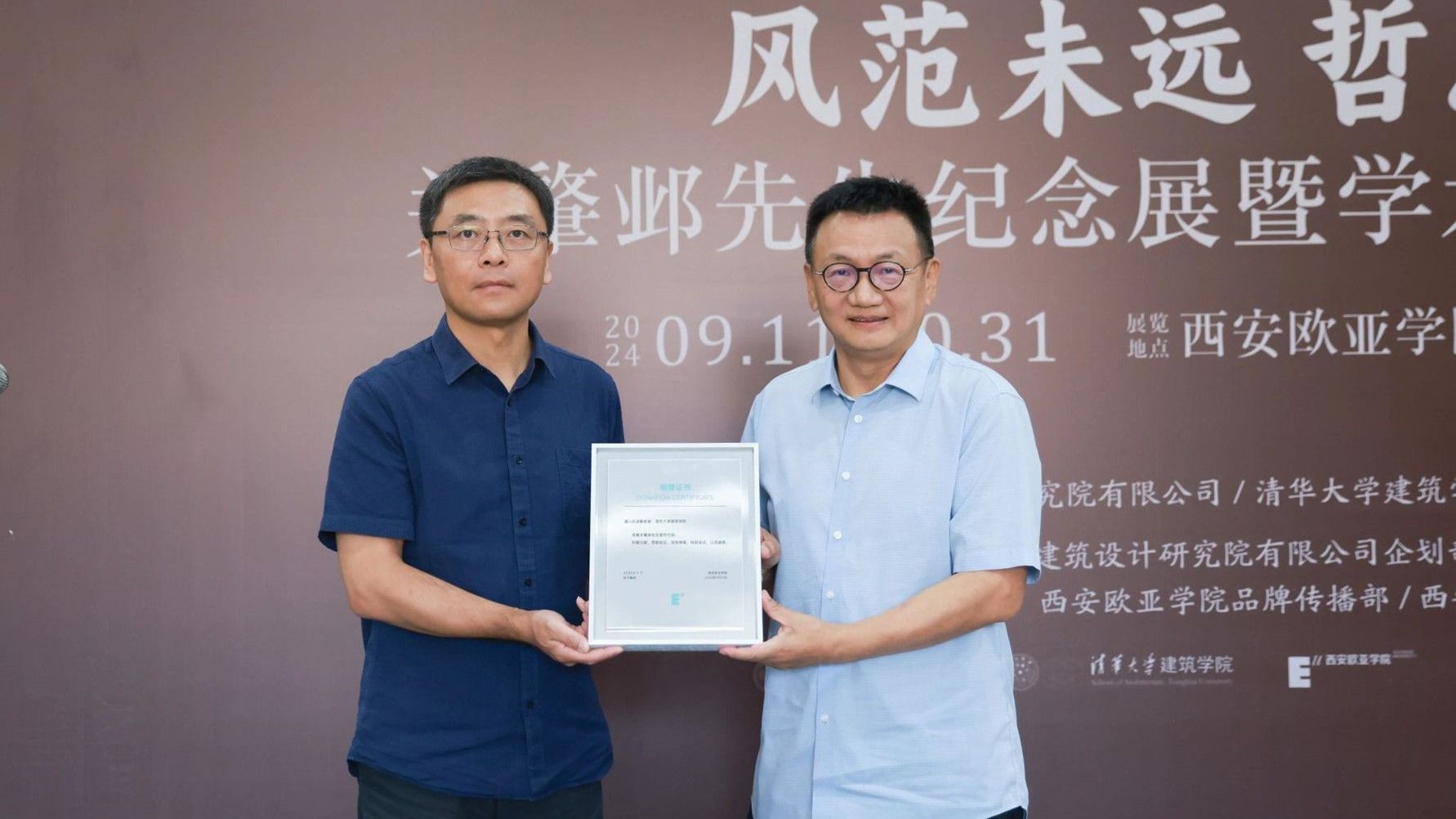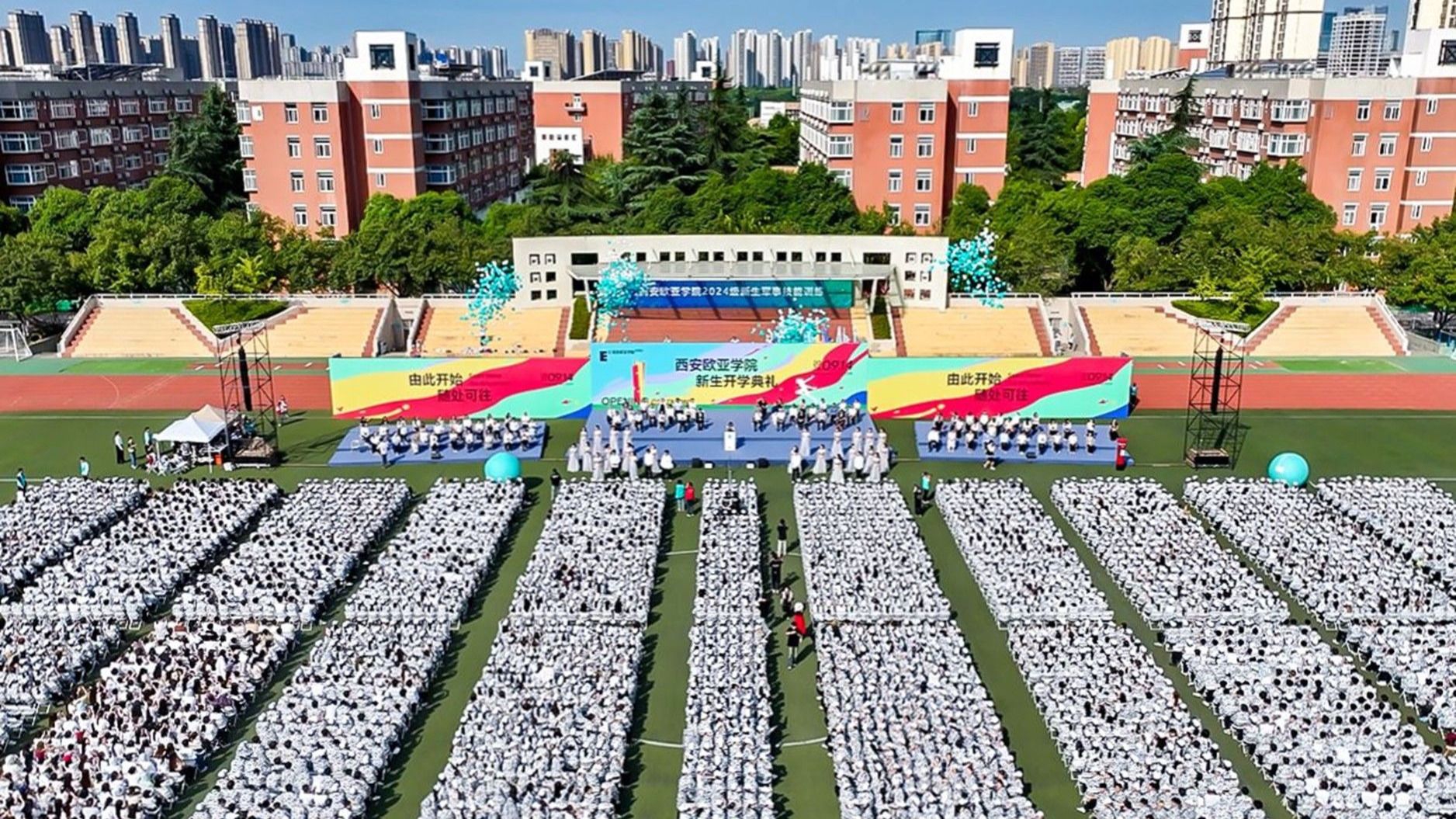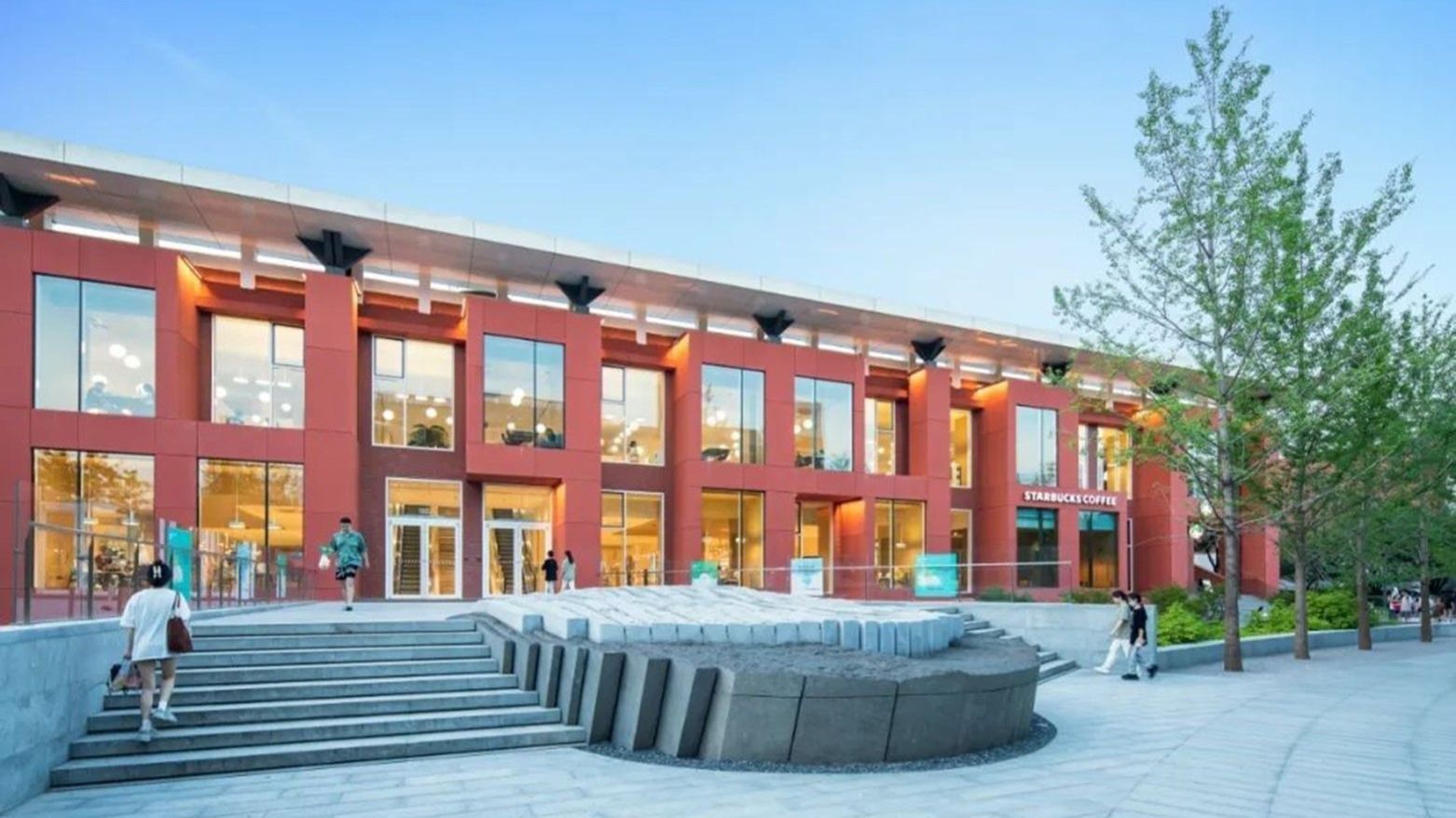Have you hummed something unintentionally while taking a shower but forgotten it later? Few people would record and reorganize such transient emotions in the way they are good at.
In the view of Zhao Wenqi, improvised music inspirations can be created into melodious piano pieces.
Working at Xi'an Eurasia University as a music teacher, Zhao Wenqi is a good improvisator and obsessed with classical music, praised as the "Piano Poet".
He gives lessons to students at the School of Humanity Education, including Chorus & Conduction and Impromptu Accompaniment. Attending his class, Liu Yuchen from Class 1 who started her program in preschool education in 2019 has perfectly released her emotions. Mr. Zhao Wenqi's improvisation has changed the impression of Lu Yanyan from Class 3 on him who was a tough and serious teacher, but now is the piano prince in the music hall.
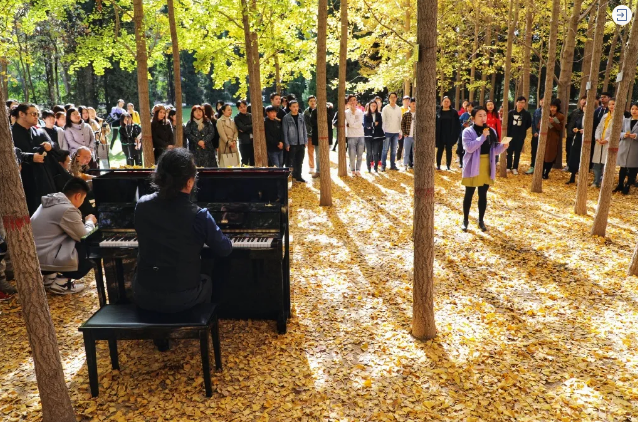
Impromptu piano performance activity
He sitting at the piano plays beautiful tunes at times with the lightsome poem chant. It is just a moment that Zhao Wenqi shared the charm of improvised music with audiences at the activity "Inspiration - Impromptu Piano Performance" held by the School of General Education on October 29.
He said, "Music can be a partner of literature. Of course, the piano and whistle can be combined. Impromptu poems or tuneful whistles can be integrated into the piano performance. An impromptu is a fruit of unrestrained imagination and rich inspirations and turns into an everlasting classic piece after recorded by chance."
After the activity, we had an interview with Mr. Zhao Wenqi about impromptu piano performance and music teaching in pre-school education.


Zhao Wenqi, a film composer, impromptu pianist, deputy secretary-general and music advisor of Xi'an Children's Singing and Dancing Association, test syllabus maker and judge of the grading test of impromptu accompaniment (performance) by the Ministry of Culture and Tourism of the People's Republic of China, art director of the Specialized Committee on Whistle Art under the Musicians Association of Xi'an, graduated from Xi'an Conservatory of Music, praised as the "Piano Poet". He is skilled in improvisation and has created several original piano pieces and film scores. He has been engaged in research on music enlightenment for teenagers and the promotion of the teaching methodology of impromptu piano performance for a long time. Besides, he is crazy about classical music and acts in operas. His representative pieces include the original whistle pieces Tang West Market, Grandma Living on Heping Road, Eight Rivers, Drizzle, and Root and Sprout.
Q1: What does music mean to you?
Zhao Wenqi: A man has flesh and blood. Music means blood to me in my life.
Q2: How did you become attached to improvised music?
Zhao Wenqi: Over the past two years, I have organized improvised music sharing three times at Xi’an Eurasia University. I like improvisation because it is unfettered and flexible like splashed-ink landscape paintings. Actually, many songful pieces were impromptu at the very beginning but merely collated into fixed tunes for being sung.
In my opinion, the creation derives from a moment of inspiration. Inspiration occurs to everyone. Someone whistles a tune at the staircase or hums an unknown song on the path, but they are not captured.
Q3: What do you feel when you give music lessons at Xi’an Eurasia University?
Zhao Wenqi: Currently in China, pre-school education involves two categories, namely professional theory courses such as psychology, pedagogy, and five fields, and professional art courses. For example, music and art teachers should have special skills and can sing and play, and do some visual arts.
But professional art courses are usually not learner-friendly. For example, a pre-school education teacher will spot the deficiencies in classroom teaching that he cannot play and sing with his students because most students are zero-based in professional abilities at admission. It is impossible to be skillful at the piano in short four or five semesters.
It apparently does not work if the teaching methods of the traditional piano are directly applied in pre-school education. I have worked at Xi’an Eurasia University for four or five years. We have a complete set of teaching system: the piano teaching system with impromptu piano accompaniment, singing, and playing at the core.
So students are often seen playing and singing children's songs and popular songs, and occasionally playing some classical piano pieces at Piano Island in the north of the teaching building. This teaching system can be utilized promptly by our students after graduation. It will arouse students' interest in music at the fastest pace. It is a major breakthrough made by us in piano teaching.
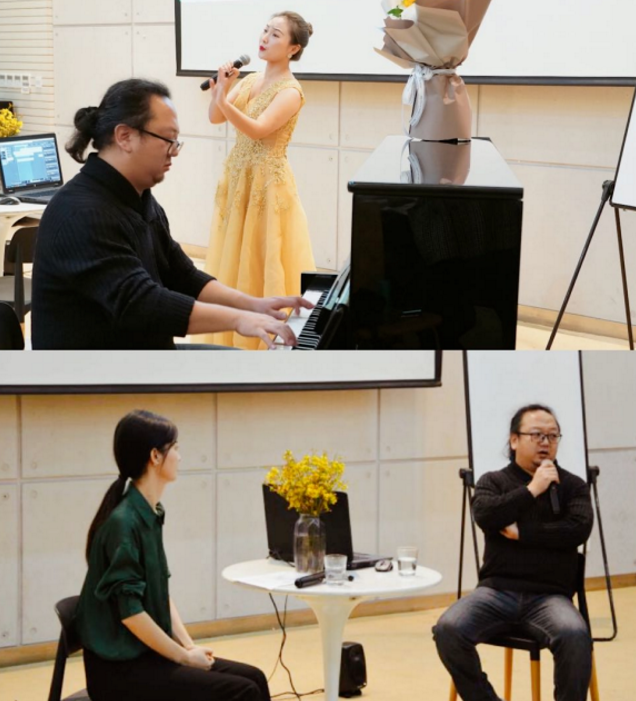
First impromptu piano performance activity
Q4: How is the specific reform in piano teaching? How does traditional music blend with improvised music teaching?
Zhao Wenqi: Traditional music teaching largely resembles a facsimile. After the reform, we firstly impart the basic expertise to students and then encourage their creation. They are encouraged to be creation-oriented music teachers (a large number of nursery teachers are music teachers) to guide children to discover and appreciate what is fine and good through games. So far, our students enrolled in 2017 and 2018 have created many works. In the future, our students will be skilled at playing, singing, and creating. It is most important to inherit and then innovate.
Improvised music teaching has not decoupled from traditional music, but it is more delicate than traditional music. We highly value the principle, "teaching students in accordance with their aptitude and making no social distinctions in teaching". Students vary from receptivity, resulting in some problems in promoting our reform in teaching.
On this account, we have set "flexible" assessment criteria. For example, we evaluate the percent of pass in a semester, but we also have another assessment standard, namely the eight-year assessment. The first four years from admission to graduation form the first stage. In the second stage, the first year is for preparation; the second year is for appreciation during which students will find their own deficiencies and what they haven't learned in the school; in the third and fourth years, they will have time to adjust their study. The eighth year will witness whether our education is successful. Our assessment is not fixed. Students will be assessed by us after a semester, and by the society four years after graduation. The ultimate assessment will be given to our teaching.
Q5: How do you give lessons to zero-based students in pre-school education, compared with professional students in music?
Zhao Wenqi: Sometimes, zero-based students cannot well understand what teachers impart, which triggers their negative feelings, but we would gradually adjust our pace and keep revising and improving our internal teaching materials.
Some internet popular songs on TikTok will greatly raise students' interest in music learning. Such songs will be used as our practice materials. By dint of this trend, students are required to find out the elements related to these notes. In the end, more efforts should be made to improve listening, so students can play a tune that they like with the piano.
Q6: How to eliminate the fear of music learning through improvised music?
Zhao Wenqi: Music is the least thing to be afraid of, because music begins when the language ends. When words fail to convey feelings, music is a good way that can bridge the gap between people.
Every year, we organize lawn music festivals, impromptu piano performances, and other activities. That's very good. Our students can be closer to music. Artists we invited are like our brothers and sisters. We are all ordinary people and get along well with each other when we are together.
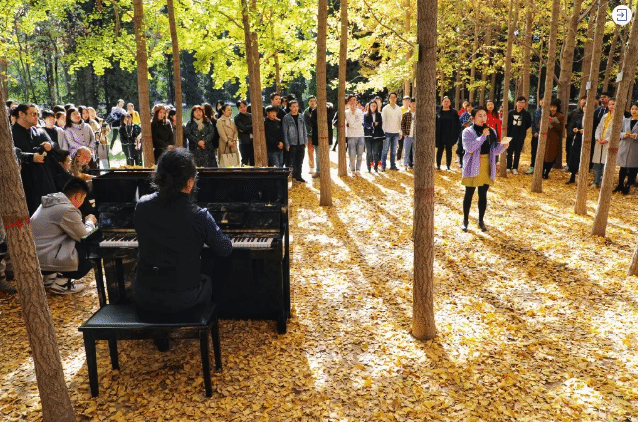
Lawn music festival
Q7: At last, what are your expectations on music teaching in pre-school education?
Zhao Wenqi: We offer many courses and we would like to help students truly and closely appreciate the charm of art through these courses, not merely teach them to play the piano or sing in chorus. The chorus shows a sense of unity and tacit understanding and reveals the harmony of all parts. The playing and singing can express many emotions.
It is a survival skill in your work. Moreover, in your lifetime or career, it is inseparable from an essential factor: you appreciate the beauty in the early period and convey it in the later period.
Skills are of only secondary importance. We do not demand students to play, sing, or draw well in the future. These skills are merely for jobs. We hope they can realize certain objectives step by step. Most importantly, they can convey something beautiful and fine they feel at Xi’an Eurasia University to more people in the future.


